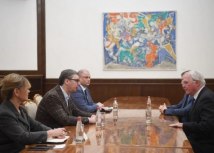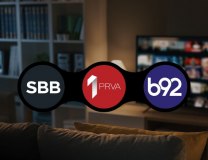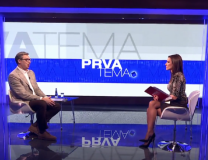SBB shuts down two national broadcasters
United Group, based in Luxembourg, within which the company SBB also operates, decided to turn off the channels, holders of Serbian national frequency license.
Source: B92
Given that such a decision was met with indignation by both the general public and their users, it chose to defend itself using the old well-established method, baselessly attacking its biggest competitor, Telekom Srbija.
However, this time they not only overestimated themselves, but also tried to underestimate the entire Serbian public once again. For the sake of truth, we highlight the following facts.
It is known to the public that United Group values its channels, whose share in viewership in Serbia is less than 4%, at more than EUR 2 per user. We remind you that for the broadcasting of its channels, in January 2020, this company asked the cable operator Supernova to pay more than 2 EUR per each user, for a group of channels, which did not even include Nova S, with an explicit, but illegal, ban on the aforementioned channels so that those are not available in a huge part of Serbia.
Also, the fact is that United Group in countries where it has channels with a national frequency, specifically in Montenegro and Bosnia and Herzegovina, demanded that those channels be paid EUR 1 per user, and for several months kept those channels off the cable operators, as a means of pressuring them to accept that price.
The question arises, what intention and economic logic is hidden behind the claim of United Group and their company SBB, that their channels registered in Luxembourg with a total viewership share of less than 4%, which at the same time do not pay any fee or tax to the Serbian state, are worth more than 2 EUR, and for the three national channels registered in Serbia to be free, even though they, the most of all the channels, pay the most taxes and fees to our country, and their viewership share exceeds 25%.
Based on the above, one can only draw the conclusion that United Group values and charges its channels according to its own price list, but it seems that this price list does not apply when it comes to other people's channels, for the broadcasting of which they have to pay.
This is a consequence of the United Group and their SBB's many years of business, based on illegal, monopolistic extra profits and the suppression of all competition, by striving to be the only cable operator and only their channels being charged commercially, at the prices they set themselves, and to the detriment of end users.
The nervousness of United Group and SBB stems from the fact that there is no longer a monopoly, that apart from Telekom Srbija, more serious cable operators have appeared on the market, making free race for the users increasingly uncertain, Telekom points out in a statement.











